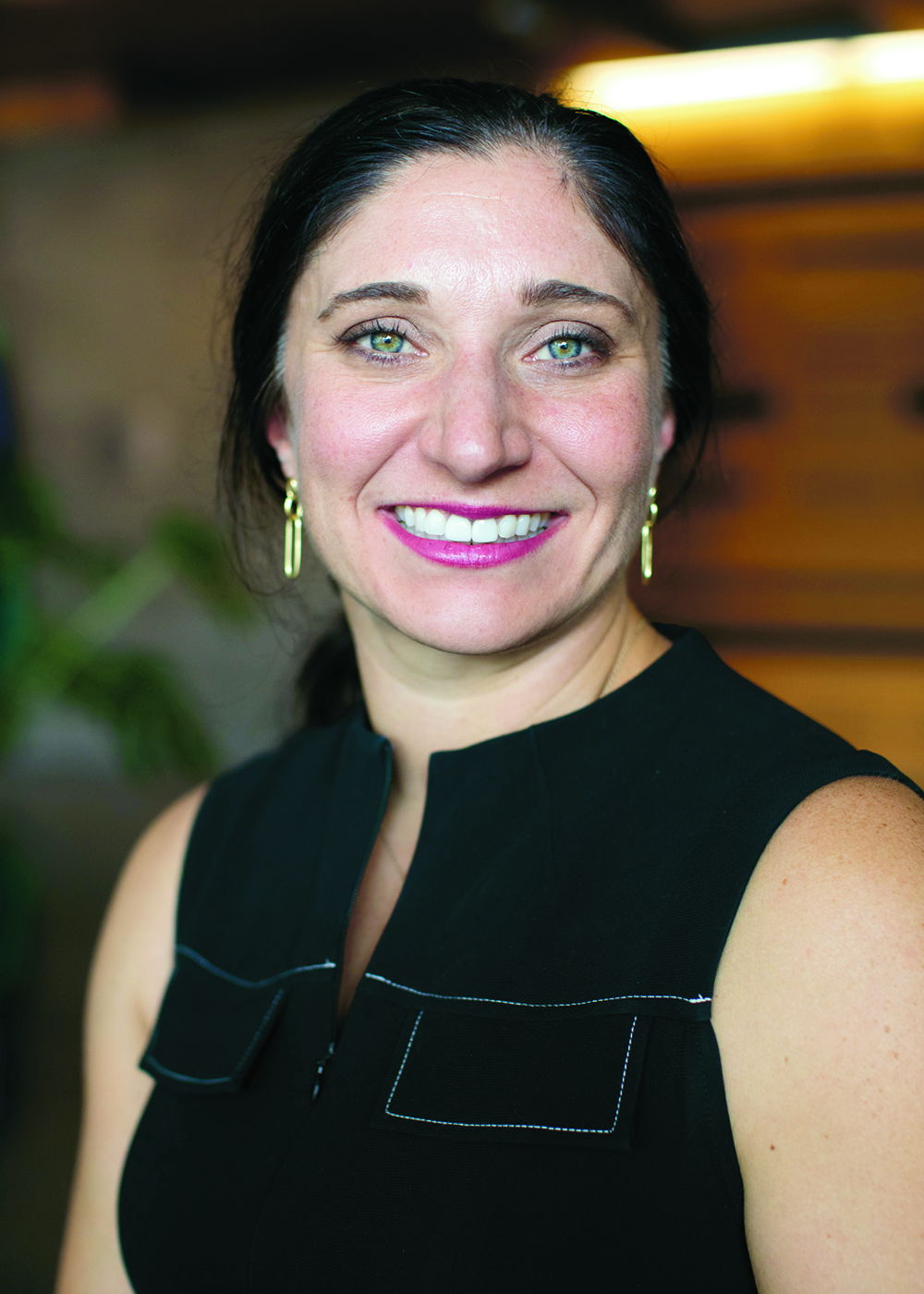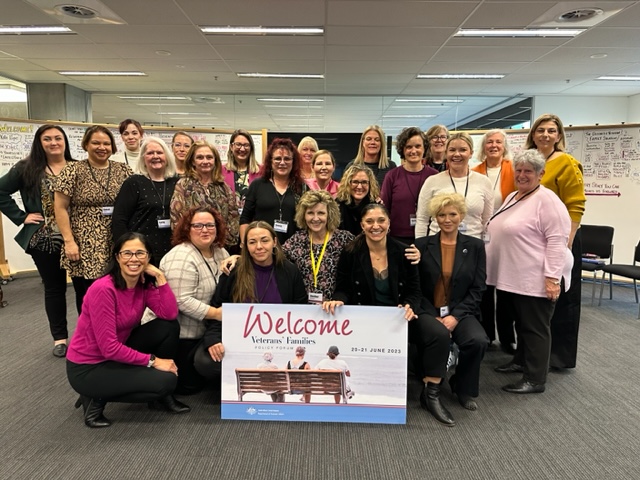Putting families at the centre
Commissioner Gwen Cherne
Veteran Family Advocate

Reflecting on my three years as the inaugural Veteran Family Advocate Commissioner, I’m reminded that change takes focused effort and often comes about through small iterative steps. While we still have work to do in making sure families are not add-ons or after-thoughts, I’ve seen a lot of change take place in how veteran families are supported. More and more families are front and centre in the development of policies, programs and services.
When I was appointed, my vision was to raise the voices and perspectives of veteran families and help the Government better understand their experiences and needs. I sought to integrate an understanding of families and the importance of including them in all aspects of DVA policies, services, legislation, operations and decision-making. None of this can be done without cultivating productive relationships across government and the veteran community.
Families come in all shapes and sizes, so programs and services in DVA, ex-service organisations (ESOs) and in the wider veteran ecosystem should be inclusive of the wide range of veteran families – be those parents, children, step-parents, aunties, uncles, siblings, support people, mates etc. The research shows that including families leads to better outcomes for veterans. None of us are islands. Our programs and services should take this into consideration and be flexible whilst ensuring the veteran family unit is at the centre. Below are some recent successes:
Defence, Veterans’ and Families’ Acute Support Package. Eligibility has been expanded from the original package. The most recent Federal Budget saw eligibility expand again as of 1 July to include children of veterans in full-time care of their grandparents. Through the package, families who are experiencing, or are at risk of experiencing, crisis can access a wide range of support from child care and household assistance to help covering the cost of education.
Family Policy Team. DVA has increased its family policy team from 1.5 full-time equivalent to 8 members, which focuses exclusively on developing and enhancing policies, supports and services for veteran families.
Education Schemes. We have established a streamlined and comprehensive approach to oversee education schemes, tailored to meet the needs of today’s families.
Parents and expanded eligibility. I am advocating for ESOs to extend their support and services to parents, including those of deceased ADF personnel. There is currently little to no support for mothers and fathers, grandparents and siblings, who also need support, healing and social inclusion.
Gaps. Identified gaps in services for various groups such as children, carers, parents, bereaved families, and survivors of family and domestic violence. I provided policy recommendations and valuable input for new proposals to be considered by government.
Eligibility improvements. As a member of the Military Rehabilitation and Compensation Commission, I helped make a change to the eligibility rules for dependants of veterans under the Military Rehabilitation and Compensation Act 2004. This change ensures eligible young people (under 25) who are intending to remain in education, but are unable to study full-time because a medical practitioner has provided a diagnosis of mental illness or injury, continue to be entitled to relevant benefits, including access to a Gold Card.
Defence and Veteran Family Wellbeing Strategy and National Action Plan. I am working with Defence, DVA and Defence Families Australia to finalise the strategy and the action plan that will sit under it. They will guide how the Government provides support to veterans and families for the next four years.
Family employment. Veteran families are skilled, qualified and experienced in many occupations and industries, yet they still often face barriers to meaningful employment and are often underemployed. It’s important to empower families by giving them the appropriate support, tools and information to enable them to thrive. Our work in this area will give us tangible recommendations on how to provide more effective employment pathways for veteran families.
Data and insights. We are advocating for a Defence and veteran family indicator on education enrolment forms in all states and territories in line with South Australia. A tick box that identifies both children of current and former serving families will level the playing field for children who can be disadvantaged because of their parent’s service and the transient lifestyle required.
In my engagements, I have begun to see the community listening to veteran families and then changing and adapting to better meet their needs. Veteran families can now participate in activities, sports, education, scholarships, retreats, camps, online courses and more. Yet, more work is needed. Veteran children, adult children, carers, dual-serving families, Aboriginal and Torres Strait Islander families, LGBTQAI+ families, CALD families, are all types of families who have unique experiences and whose needs must be better understood and addressed.
I am proud of how far we have come and am energised when I look ahead to what we can achieve in the future. If you’re interested in hearing more about what I’m up to, I encourage you to sign up to my regular snapshots by emailing vfa [at] dva.gov.au (vfa[at]dva[dot]gov[dot]au) or by following my social media platforms.

Commissioner Cherne with participants of the Veterans’ Families Policy Forum.
